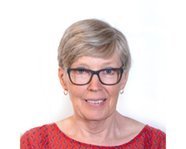Economic Mission on Food Waste
- Circular economy, Sustainable economy
- USA
Are you a Brussels company offering innovative circular solutions to address the issue of food waste? Join hub.brussels’ economic mission to New York from October 22 to 23. Take part in seminars and roundtables, B2B meetings, information sessions, visits, and more. Get ready to exchange best practices, together toward SDG 12.3!
About
The world has witnessed ambitious sustainability targets set in Europe’s Green Deal and the United Nation’s Sustainable Development Goals. These sets of policy objectives focus on tackling the most pressing global challenges by setting expectations for the implementation of sustainability into policy makers’ decision making. Inspired by these goals, some cities want to take it even further by tailoring strategies for their respective homes. Two of these cities, Brussels and New York, seek to lead by taking the example set in Europe and at the UN and integrate sustainability into every part of their policy making processes, including the global food system.
Indeed, humanity faces a massive paradox: we need food to live, but the methods we use to produce it are not up to that task in a sustainable way. A transformation of the food system—covering production, processing, distribution, retailing and consumption—is therefore needed to respect human and planetary health.
One potential game-changing future redesign, which is gaining increased attention, is a circular food system. Redesigning the food system based on circularity principles could bring environmental benefits for the world.
In a circular economy, food is designed to cycle, so the by-products from one enterprise provide input for the next. Cities can make the most of food by redistributing surplus edible food, while turning the remaining by-products into new products, ranging from organic fertilizers for regenerative peri-urban farming, to biomaterials, medicine, and bioenergy.
Rather than a destination for food, cities can become centers where food by-products are transformed, through emerging technologies and innovations, into a broad array of valuable materials, thereby driving new revenue streams in a thriving bioeconomy.
During this event, we will discuss the best practices and perspectives of such leading cities as Brussels and New York. By exchanging between public and private players, industry leaders, and experts in the field, we aim to provide new opportunities for collaboration; so that we can achieve a faster and more equitable transition to sustainable economies. By presenting these exchanges, we hope to inspire new hubs of sustainability, defined by resident centric, clean, and equitable economic practices.
Program
The program is currently under construction and subject to changes.
Tuesday 22 October
09.30am – Breakfast and briefing at Consulate of Belgium (Meeting Room)
11.00am – 12.30pm – Hybrid Session on: INNOVATIVE CIRCULAR SOLUTIONS TO REDUCE FOOD WASTE – Exchange of best practices and innovations in Brussels and in New York City – Consulate General of Belgium Meeting Room
Partnering with Permanent Representation of Belgium to the United Nations
Expert speakers from NYC and Brussels, in-person in NYC and virtual call-in from Brussels. The objective is to learn from each other. To discuss what works and what not in Brussels and in NYC. In-person NYC audience with Stakeholders, Experts, UN representative, etc.
Part 1/Opening: UN speaker, Intro and moderator (tbc): SDG 12.3 Objective to reduce Wood Waste by 2030
Part2/ Exchange of best practices between Brussels and New York – Public Stakeholders – Policy makers
Overview of current situation of food waste in both cities / Challenges / Policies put in place / Regulation/ Successful projects
Part3/Hotels and Event Spaces ‘big wasters’, how do they approach the problem?
Exemplary projects and solutions from important stakeholders in event and hotel sector based in NYC
Part4/How to translate ambitious policy goals into private market opportunities? – Private Stakeholders – innovative entrepreneurs
- Examples of interesting innovations and projects (in other cities) – circular solutions and new business models
- Founders stories, challenges and successes
12.30pm – 02.00pm – Lunch and Networking
02.00pm – 05.30pm – Visit to local restaurants to see and hear about the challenges most restaurants face in NYC and how they currently manage waste.
Evening
Visit of Vertical Farm or Micro Brewery – Beer Culture (tbc) or free evening
—–
Wednesday 23rd of October
09.00am – 11.00am – Informal round table with Belgians with experience in Food sector in NYC
These entrepreneurs, originally from Belgium, with many years of experience working in the food sector, will share their experience and how they approach the problem of food waste in their day-to-day business activities in New York city.
11.30am – 1.00pm – Panel discussion with local sustainable food entrepreneurs
1.00pm-2.00pm – lunch with local sustainable food entrepreneurs at Impact Hub
Free Time – Walk – Stretch legs
2.30pm – 4.30pm – Trends in Impact funding – How to pitch for funding in the USA – Interactive session with Venture Capitalists
Food systems transformation to a circular economy and reforestation, wilding and biodiversity to help make our cities smarter… Given innovation’s promise to solve key global issues, such as climate change. There is a growing need for early-stage capital, particularly impact VC.
06.00pm – 8.00pm
Visit of Fifth Hammer in Long Island City (TBC) + reception
Practical info
Selecion criteria
This mission is open to Brussels-based companies offering innovative circular solutions to address the issue of food waste.
Price
Mission participation (excluding flights and overnight stays):
- €100 for VSEs and SMEs
- €500 for other companies
Useful resources
I'm taking part in the mission!
Registrations open until 10 September 2024
Any questions? Just ask Kathlijn!

Kathlijn Fruithof
United States (New-York - Bahamas)
885 Second Avenue, 41st Floor
New York, NY 10017
USA
